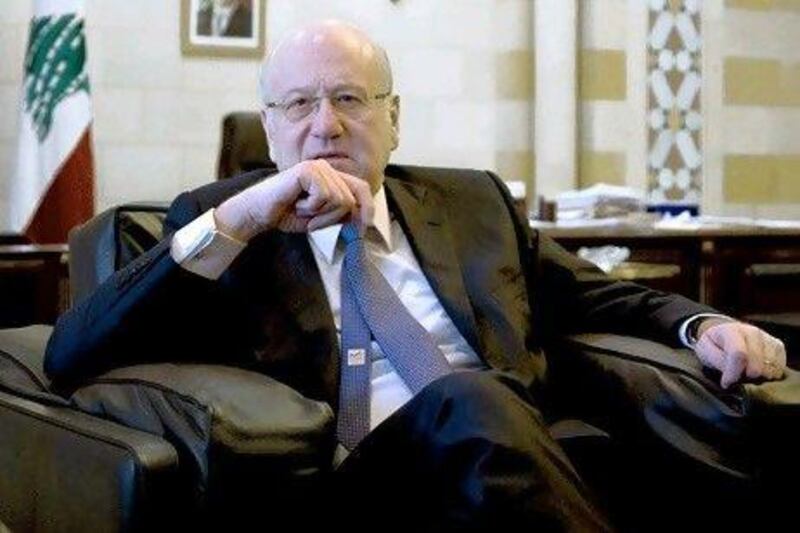Najib Mikati must be wondering why he agreed to run this crazy country Lebanon.
Surely this was one headache he didn't need. He had already served successfully as the interim prime minister in the spring of 2005. Back then he was cast as the even-handed billionaire, a gentleman politician approved of by all sides, a man who was able to pave the way for peaceful parliamentary elections following the Syrian withdrawal.
"Thanks guys. Been there, done that," he should have said. But clearly "that" wasn't enough. To be truly vaunted in Lebanon, you must have had the job more than once. In fact the record to beat is Rashid Karami's eight terms. In any case, even though Mr Mikati accepted the job of helming a government that many still insist came to power in what amounted to a coup d'état, I have always sensed he genuinely believed he would once again be a unifying force.
Sadly, it's been downhill ever since. The economy is in a tailspin, public services are a mess and Lebanon does little protect itself as Syria burns. Now we have the season, or il mawsam, and the private sector is already sensing it's over before it's even begun.
"Gunmen Menace Beirut Streets", screamed the headline in Tuesday morning's The Daily Star. The story referred to the storming and firebombing of the popular Arab satellite channel Al Jadeed while the station was on air. Images of masked men doing their worst before escaping into the night were captured on CCTV and beamed across the region. Hoteliers and restaurateurs across Lebanon groaned in unison.
Even in the good times, Lebanon bucks the trend when it comes to popular tourist destinations. Because despite what the ministry would have us believe, Lebanon is not beautiful. It was once but the Lebanese have ruined their country with rampant construction. There is no environmental awareness, so those hikers who do make it here are unlikely to walk in a pristine wilderness unless they are in the Chouf (where the Druze politician Walid Jumblatt has convinced his people not to litter). There is limited electricity and the roads are a mess.
Lebanese tourism rests on a simple agreement. Many tourists come to a country that doesn't work because they can basically do what they can't do elsewhere in the baking Arab world at this time of year - shop, eat, party all night and either sleep all day or recharge with a restorative nargileh.
However, the current combination of violence and decrepitude may have just done it for us, for this year at least. Already there are reports of tourists going home because many hoteliers cannot provide 24-hour power.
You would think the economy and infrastructure would be priorities but when our political class does get around a table to thrash out really urgent matters - we call it national dialogue - the agenda more often than not focuses on who's got more guns than whom.
No doubt dismayed by the warped priorities, the head of the Association of Lebanese Industrialists, Neemat Frem, a man committed to the maintenance of Lebanon's crucial private sector engine, called quite reasonably for an "economic dialogue". But I would wager no one is really listening.
Contrast this mess with Mr Mikati's speech at last week's Rio+20, when he announced, with a straight face, that his government was working on a seven-point plan for economic, social and environmental reform.
"Lebanon is an example that shows the relationship between achieving sustainable development [on one side] and security, peace and stability," he declared. No one believed a word. The Lebanese people often boast about the burden they are born with, about how they have learnt to just get on with it and make the most of their opportunities and, by and large, they do very well. But even that Levantine stoicism can be buffeted by this self-delusional guff only for so long.
I will be surprised if this government lasts the summer.
Michael Karam is the associate editor in chief of Executive, a regional business magazine based in Lebanon





